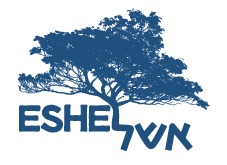LGBTQ Jews need a place in community
In 1952, my dad was a popular senior on his high school football team and my mother was a recent immigrant from war-torn France. It was my father’s protective instinct that caused him to intervene one day to help a newly arrived French girl navigate their American high school, an instinct, among others, that eventually led to their marriage.
My mother was among 1,300 children who survived World War II in the French countryside, where, at great risk to themselves, three non-Jewish French families opened their doors to my mother after her father had been taken to Auschwitz and her mother could no longer protect her.
Over the years, it has become clear to me that the value of hachnasat orchim (welcoming the stranger) is an existential one for me personally. But I have also come to understand that it is an orchestrating value of Jewish identity.
Among all the many duties of kindness that Maimonides records, he deemed welcoming the stranger the most important. Such was the nature, he claims, of Abraham and Sarah, whose commitment to opening doors to the vulnerable stranger is embedded in our cultural DNA. Maimonides teaches that expressions of kindness – like dowering a poor bride, visiting the sick and burying the dead – are fulfilments of “love thy neighbor as thyself.”
While in many liberal environments, acceptance is common, in Orthodox communities, lesbian, gay, bisexual and transgender and queer (LGBTQ) people are terrified to speak honestly about their feelings. Many have been told by their religious authorities: you are not wanted. You cannot have aliyot, or lead services, or bring your children to the youth program, or join formally, or in some cases even walk through the door. You are just too strange. Your difference scares us. You might affect our children. Please leave.
This is not the tent of Abraham and Sarah. This is like the city of Sodom, of which the midrash says there was a bed for the weary stranger – if he was too short, the bed turned into a rack to stretch him; and if he was too tall, it cut off his feet. Too many of us have felt stretched to the point of breaking by the normative social expectations, and cut off at the ankles by people’s fears.
Four years ago, a group of us created Eshel, an organization named after Abraham’s bright flowering tree that signaled to travellers sanctuary and care. It is dedicated to embracing LGBTQ traditional Jews and working to inspire Abrahamic welcome in Orthodox communities across North America.
In the past several years, a new empathy has begun to transform Orthodox communities. Slowly and steadily, Orthodox LGBTQ individuals in their teens and 20s are choosing to be upfront and honest with their families and communities about their sexual orientation and gender expression. In so doing, they are changing the face of Orthodox Judaism. Some of us are finding committed partnerships, making families and seeking Orthodox communities where we can be members. This is challenging religious leaders and their congregations to navigate halachic considerations and group fears that can make any difference feel too risky to embrace.
My great-grandmother on my father’s side did just that in the 1940s. Hannah Greenberg and Grandpa Max left Romania in 1923, settled first in Winnipeg and then moved to McKees Rocks, Pa., where they joined the little Orthodox shul. A few years later, Hannah joined the board and, as the family story goes, when a poor man, Mr. Rive, reputed to be a Communist, could not pay his dues the board decided to bar him from attendance on the High Holidays. Hannah would have none of it. “If there’s no room for Mr. Rive,” she announced, “then there’s no room for me.”
The next week she founded what was lovingly called “The Rebel Shul.” She bought two Torahs with her own money and ran the minyan for seven years, baking rugelach and serving matches herring to lure the men to shul on time.
These are the values that mark true faith and piety. No one is locked out, stripped of membership. No one is asked to leave due to irrational fear, political liability or social discomfort.
Right now, LGBTQ teenagers in your community are wondering whether there will be a place for them. There are presently a few – at most a dozen – Orthodox shuls in the world where LGBTQ people and their families have been fully embraced. In the next five years, Eshel is aiming to help generate 36 “Rebel Shuls” across North America where young LGBTQ Orthodox Jews can imagine a good life lived in community. It may not be easy, but the ethic of fearless welcome that made heaven swoon for Abraham and Sarah is also life saving for the vulnerable, and defining of our very nature.
Rabbi Steven Greenberg is author of Wrestling with God and Men: Homosexuality in the Jewish Tradition, and the founder and co-director of Eshel, an Orthodox LGBT community support and education organization. Steve lives with his partner Steven Goldstein and his daughter Amalia in Boston.
See full article.
